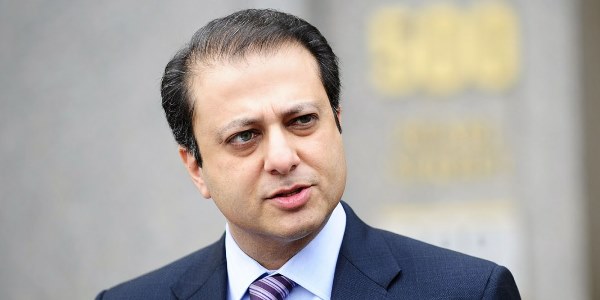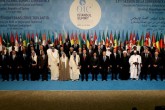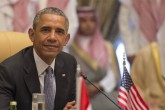U.S. Attorney Preet Bharara became an instant celebrity in Turkey upon the arrest of Turkish-Iranian businessman Reza Zarrab in Miami, Florida. In recent weeks, Turkish Twitter users have been showering him with messages. Although Bharara tried to respond to everyone at first, he soon grew tired of the attention.
Earlier this month Bharara delivered an address at the New York Press Association to point out that Zarrab was arrested on charges that he and others had evaded U.S. financial sanctions on the Iranian government. He added that the U.S. authorities had arrested an individual who happened to be quite well-known in Turkey, but warned that his previous arrest in Turkey was unrelated to his investigation.
For some reason, the Turkish media described Bharara’s well-crafted speech as a lesson in press freedoms. Certain people claimed that Bharara will usher in a new era in Turkish history. Others argued that the U.S. attorney had taught a valuable lesson to Turkey’s pro-government press. Yet another talking head made the case that the Turkish people should be embarrassed by Bharara’s speech, which, to be clear, hardly touched on the issue of press freedoms.
The same reporters in Turkey had been claiming that the United States had launched an investigation into corruption in Turkey. President Recep Tayyip Erdoğan would not be able to leave the country, they claimed.
To be clear, anyone who rejoiced at Zarrab’s arrest and considered legal action against him as an attack on the Turkish government desperately wanted to ignore Bharara’s main point that the U.S. authorities are investigating violations of financial sanctions on Iran. Their claims that the U.S. government is after Turkey’s leaders simply does not fit into Bharara’s investigation.
At this point, it should be clear, if it was not before, that Zarrab’s arrest in Miami is about U.S.-Iranian relations as opposed to Washington’s partnership with Ankara. At a time when everything, and nothing, is about press freedoms, Bharara’s speech made it clear that the U.S. authorities are simply trying to put an alleged violator of financial sanctions behind bars.
However hard certain people in Turkey try, Bharara’s case has no ties with Turkey. Unwilling to face the music, some Turkish citizens are apparently trying to feed Bharara some rakı and kebab. Here is what he told them: “I do love shish kebab, but I don’t think I can accept gifts just for doing my job.”
[Daily Sabah, April 20, 2016]



